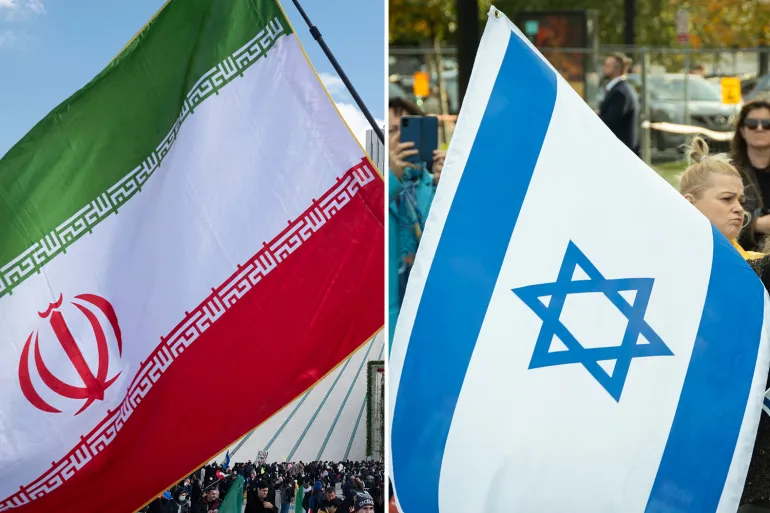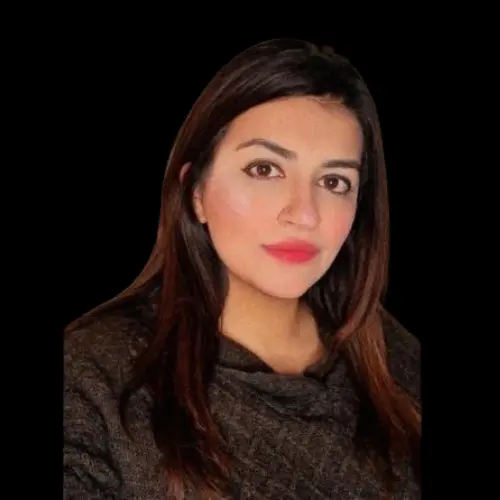
Iran’s retaliatory missile and drone assault against Israel has thrown much of the Middle East into disarray, with regional powers trying to figure out the new terms of engagement between the two enemies. This attack increases the risk of a larger war, in the face of increased military engagement from Israel. Escalation also elicits a complex response from the international community, with a range of diverse viewpoints and concerns about regional stability.
Iran’s attack on Israel was also qualitatively and quantitatively distinct from anything Tehran has ever attempted. Rear Admiral Daniel Hagari, a spokesperson for the Israel Defence Forces, claimed it included at least 170 drones, 30 cruise missiles, and 120 surface-to-surface missiles (SSMs). The strikes were repeatedly launched from locations in Iran, Iraq, Syria, and Yemen simultaneously.
Following Iran’s attack, the UN Security Council promptly called an emergency meeting. Gilad Erdan, Israel’s ambassador to the United Nations, urged the Security Council to condemn Iranian assault and designate the Iranian Revolutionary Guard Corps (IRGC) as a terrorist organisation. The summit emphasised the global urgency to confront the violence, with participants deciding on a response consistent with international law, notably Article 51 of the UN Charter on self-defence. This plan may further isolate Iran and escalate the conflict, potentially leading to a more aggressive position from both sides.
The United States response was fast and unequivocal. President Joe Biden expressed his unwavering support for Israel. The administration emphasised Israel’s security as a top priority, reaffirming the United States’ commitment to standing behind Israel as it faces challenges from Iran. The White House maintains constant contact with Israeli authorities, ensuring that the US remains closely aligned with Israel’s security requirements during this crisis. However, this assistance may encourage Israel and exacerbate tensions with Iran, potentially leading the US into a direct confrontation with Iran. US, however, has categorically said that it will not form part of any retaliatory strikes by Israel on Iran in near future. Although Israel and the United States, the current circumstance provides an opportunity to demonstrate the capabilities of their advanced air defence systems. As tensions remain high, the testing of AD systems serves not only as a display of military prowess but also as a strategic deterrent against further aggression.
Also Read: Abraham Accords and Middle Eastern Politics
The EU has voiced great worry over the escalation, urging quick de-escalation and a return to diplomatic talks. The EU’s stance emphasises the conflict’s broader consequences for regional stability and the possible danger to international security, calling for a balanced approach that takes all parties’ interests into account. This strategy could promote conversation while lowering the possibility of a broader conflict.
Both Russia and China have called for prudence and emphasised the necessity of diplomacy over military action. Their actions demonstrate a cautious strategy aimed at preventing additional destabilisation in the region. Given their strategic interests in the Middle East and ties to Iran, Russia and China are likely to play key roles in diplomatic negotiations. Their involvement in diplomatic efforts could help manage tensions and prevent further escalation.
While Iranian-backed groups in Yemen, Lebanon, and Iraq praised Iran for the attack, they notably stayed out of the conflict this time, indicating a desire to avoid further escalation. Arab governments, already facing public outrage over Israel’s actions in Gaza, called for restraint, recognizing the potential for the situation to spiral out of control.
Saudi Arabia, a key player in the region, has echoed calls for caution and self-restraint, recognizing the risks of further instability. With its own geopolitical rivalries and the potential for spillover into its territory, Saudi Arabia is acutely aware of the implications of heightened tensions. Similarly, the UAE has expressed alarm about the developing instability, emphasizing the need for de-escalation to avoid escalating tensions. Egypt has raised its alert level, emphasizing the significance of self-control in ensuring regional stability. Jordan, which shot down several of the Iranian rockets, is facing internal criticism for its role, complicating its position in the area. Despite Iran’s efforts to mitigate the repercussions by providing advance notice of its operations and restricting the involvement of proxies, the risk of escalation persists, emphasizing the fragility of the existing scenario.
Egypt voiced significant concern about the suspected Iranian drone attacks against Israel and the rising tensions between the two countries. The country emphasised its continuous efforts to engage with all relevant parties in order to contain the situation, de-escalate tensions, and prevent the region from devolving into further instability, which might jeopardise the interests of its citizens. Egypt’s stance in the crisis is one of mediation and diplomacy, aiming to prevent further escalation and promote regional peace.

As Iran launched over 300 drones and missiles, Jordan, an Arab-majority country and ally of Israel, joined in intercepting them, marking a surprising development given Jordan’s previous criticism of Israel’s actions in Gaza. This stance by King Abdullah II, while criticised by pro-Palestine forces, demonstrates Jordan’s delicate balancing act as a militarily weak and economically disadvantaged country that cannot afford to go to war with its neighbour. Jordan claimed it fired down the Iranian drones in self-defense and denied any intention to assist Israel.
Jordan’s economy, ranked 89th in the world by GDP, benefits from Qualified Industrial Zones established under a US-promoted deal, which allow companies employing Israeli inputs to export duty-free to the US, creating 36,000 jobs. Despite pressure from the Muslim Brotherhood to close these zones, the government keeps them open because they help to create jobs. Jordan receives a significant amount of aid from the United States, a close friend of Israel. King Abdullah has stated unequivocally that Iran will not destabilise Jordan in the same way that it has in Iraq, Syria, and Lebanon, and has expressed alarm over the Iranian Revolutionary Guard Corps’ assistance for pro-Iran militias in Iraq. Amman prioritises internal stability, acknowledging the destabilising consequences seen in neighbouring nations.
Iran has justified its actions as a necessary response to previous Israeli aggressions, highlighting the most recent Israeli attack on its consulate in Syria. Tehran claims that its military activities were a kind of self-defense, intended to demonstrate its ability and willingness to respond to Israeli provocations. While Iran may attempt to de-escalate the situation, Israel is ready to take any opportunity to assert its military dominance and further isolate Iran. This dynamic underscores the importance of considering the stances of key players like Russia and China, whose support or opposition could significantly influence the course of events.
Sanam Vakil, director of Chatham House’s Middle East and North Africa programme, described Iran’s latest attack on Damascus as the final provocation that triggered Iran’s extraordinary strikes, which caught Israel off surprise. According to Vakil, Israel’s repeated strikes, including a violation of the Vienna Convention by hitting a diplomatic site, undoubtedly prompted Iran to fear that not responding would empower Israel to further damage the “axis of resistance” in the region. According to Vakil, Iran’s response was intended to reinforce its red lines and establish some level of deterrence. The intensifying conflict poses a serious risk for Israel and the US, as indicated by the spillover effects seen in Gaza and Lebanon over the last six months, indicating the possibility of additional escalation beyond current boundaries.
Pakistan’s reaction displays a nuanced position emphasising regional non-involvement and wider Islamic solidarity. Pakistan criticised Israel’s early escalations on April 1, 2024, and has urged the international community, particularly the UN Security Council, to follow globally established rules to de-escalate the situation. The government has also expressed concerns about the humanitarian consequences of the continued attention on the Iranian-Israeli conflict in Palestine. India voiced deep concern about the increasing hostilities, calling for a rapid de-escalation and a return to diplomatic engagement. India emphasized the importance of regional security and stability, reflecting its larger strategic interests in the Middle East. Canadian Prime Minister Justin Trudeau strongly condemned Iran’s actions, emphasizing Canada’s support for Israel. Canada stayed close in its alliance with Netanyahu and lobbies highlighting that such actions are detrimental for regional peace.
As the crisis develops, the international community remains on high alert, with appeals for caution and diplomatic engagement resounding across global capitals. The sentiments vary, but the overall theme is a desire to avoid further escalation, which may lead to a larger confrontation, emphasizing the delicate balance of interests in the Middle East. The shifting dynamics in the Middle East highlight the fragile balance of power and the interconnectivity of global politics. As players maneuver to advance their interests, the consequences of their actions extend well beyond the region, affecting the course of international relations for years.
The opinions shared in this article reflect the author’s personal views and do not necessarily align with the institution’s official stance.



















Leave a Reply